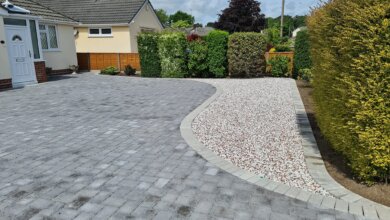When you’re preparing for outdoor adventures or events, choosing the right shelter is a crucial decision. From camping in unpredictable weather to setting up for a festival or trade show, the need for a durable, weather-resistant, and reliable tent cannot be overstated. That’s where heavy duty tents for sale come into play. These tents are built to withstand wear, pressure, and the elements—making them an ideal choice for anyone requiring both strength and functionality.
What Makes a Tent “Heavy Duty”?
A heavy-duty tent stands apart from standard recreational tents because it is built with more robust materials and reinforced construction. These tents are designed to provide stability, weather resistance, and extended usability under tough conditions. Key features typically include:
- Reinforced seams and stitching
- High-denier (thicker) fabrics for added strength
- Heavy-duty zippers and hardware
- Stronger poles, often made of steel or aircraft-grade aluminum
- Weatherproof coatings and UV resistance
These qualities allow heavy-duty tents to perform well in harsh environments, including high winds, rain, snow, and prolonged sun exposure.
Comparing Tent Materials: Durability vs. Weight
The type of material used in a tent plays a significant role in its durability and suitability for various conditions. Here’s a look at the most common materials used in heavy duty tents for sale:
- Canvas (Cotton)
- Pros: Naturally breathable, excellent insulation, long-lasting
- Cons: Heavier, requires more maintenance, susceptible to mildew if not dried properly
Canvas tents are favored for long-term setups and extreme weather protection. They provide superior insulation in cold environments and tend to be quieter during rain.
- Polyester
- Pros: Lightweight, affordable, quick-drying, resistant to UV damage
- Cons: Less breathable than canvas, may degrade over time with extended UV exposure
Polyester tents are popular for their balance between durability and convenience. They are lighter and often coated with waterproofing agents.
- Nylon
- Pros: Lightweight, compact, cost-effective
- Cons: Less durable than canvas or polyester, more prone to tearing under stress
While nylon is common in lightweight backpacking tents, some high-denier versions can be used for heavy-duty applications, particularly when paired with strong frames and coatings.
Top Features to Look For
Selecting the right tent isn’t just about fabric or size. You should also consider the features that affect comfort, usability, and performance in the field.
- Weather Resistance
Choose a tent with excellent waterproof ratings (measured in mm) and fully taped seams. A rainfly or built-in awning is a plus for additional protection.
- Frame Strength
Look for tents with steel or thick aluminum frames. Some models offer reinforced joints and extra support poles for added stability in windy conditions.
- Ventilation
Heavy-duty tents can get stuffy if not well-ventilated. Mesh windows, roof vents, and multiple entry points can improve airflow, especially in warm climates.
- Ease of Setup
Larger, stronger tents can be complex to set up. Models that come with color-coded poles or quick-setup systems can save time and effort, particularly in bad weather or when working alone.
- Space & Layout
Consider the intended use—whether for sleeping, storage, or event space. Tents come in various layouts: dome-shaped, cabin-style, wall tents, or large multi-room structures.
Choosing the Right Size and Style
Tents range from compact 2-person shelters to massive structures that can accommodate 20 or more people. When deciding on size, consider both the number of occupants and how you intend to use the space. Here are some common configurations:
- 2–4 Person: Ideal for couples or small families
- 6–8 Person: Provides comfort with extra room for gear
- 10+ Person: Best for group outings, extended stays, or event hosting
- Wall Tents or Yurts: Suitable for base camps, semi-permanent installations, and outfitter camps
The style also matters—cabin tents with vertical walls provide more headroom, while dome tents are more aerodynamic and stable in the wind.
Maintenance and Longevity
Proper care is essential to keep a heavy-duty tent performing at its best over the years. Here are a few tips:
- Clean regularly: Remove dirt, mud, and tree sap after each use
- Dry completely: Avoid storing when wet to prevent mildew
- Repair small issues promptly: Patch holes and reinforce weak areas
- Store properly: Keep in a cool, dry place when not in use
- Reapply waterproof coatings: As needed, especially after multiple uses
By following these maintenance steps, you can extend the life of your tent and protect your investment.
Final Thoughts
Choosing from the wide variety of heavy duty tents for sale means finding a balance between durability, usability, and size. Whether you’re a camper needing weather protection, an event organizer seeking reliable cover, or someone in need of a temporary shelter for work or emergency use, a well-built tent makes all the difference.
Take time to evaluate your needs, from materials to features to intended use. With the right tent, you can count on lasting performance through countless outdoor experiences. A quality shelter is more than just equipment—it’s a foundation for comfort, safety, and success when it matters most.




